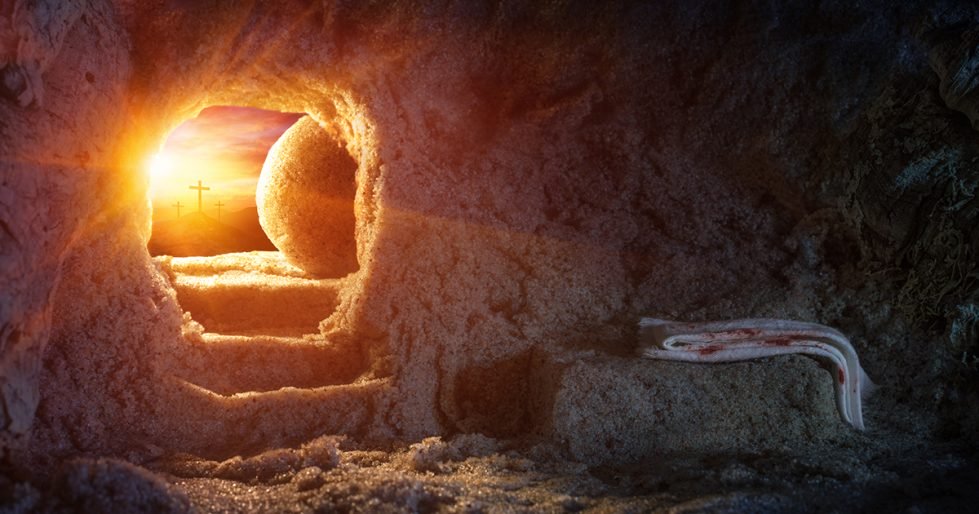|
What do we make of the Resurrection? We find it in every Gospel (though Mark’s Gospel seems to have originally ended at the empty tomb, according to some of the oldest manuscripts we have). And St. Paul calls it the fundamental core of the Christian religion. If Jesus did not rise from the dead, our faith is in vain. Everything in our faith hinges on this historical event, for without it there is no salvation and Jesus is not who he claimed to be. There of course have been many attempts over the past two millennia to try to strip away the supernatural character of the Resurrection. We could psychologize it at an individual level and say that the early Christians were so distraught, so overcome with grief and loss and depression, that their minds began producing visions of Christ walking among them again, performing miracles. In other words, subconsciously their brains created visions of something that wasn’t really there as a coping mechanism for their intense grief. As a result, they really and truly believed Jesus had risen, and reported as such. We could also say that the early Christians as a collective were so lost and saddened by the execution of their leader, so desperate for something to keep this community united when its uniting head has just been removed, that they fabricated the affair. Perhaps intentionally, as in an ancient argument which says the disciples stole the body of Jesus from the tomb, and created stories about the Resurrected Jesus in order to justify the continued existence of this “Christian” community—in order to give the early Christians a “win,” so to speak. Or perhaps unintentionally, as the community began mythologizing Jesus in liturgy and ceremony and over many years that myth grew and evolved into the supernatural “risen” Jesus who bears no resemblance to Jesus of Nazareth. But neither of these options is truly tenable. The first is false on its face, as it would make little to no sense for an ancient Jewish mind to have created delusions of a resurrection. That is something we may expect from a modern Christian mind, whose whole life has been filled with talk of resurrection. But resurrection was a largely foreign concept to Judaism at the time, and their hesitation and skepticism of the event (especially Thomas) bears that out. There’s also the massive problem of St. Paul here, who had never met Jesus in life and spent a good deal of time persecuting his followers. He would not have been distraught in the slightest at the death of Jesus, let alone distraught to the point of delusions. The second proposition is a bit more difficult to contend with, at least as it pertains to the “growing myth” possibility. The idea that the disciples stole the body and fabricated the whole story is dismissed as easily as the psychologizing of the first proposition. These are not people who would have expected a resurrection in the first place, and indeed would have probably been opposed to the idea, especially to the extreme that the Resurrection story goes where we see the actual corporal earthly body of Christ being glorified. As regards the myth proposal, specifically, the words of St. Paul stand out the most. The Resurrection is not an added-benefit to the Christian religion, it is not just another story in the wide array of Biblical tales. It is the hinge point, the foundation stone upon which our entire faith rests. Without it, nothing about Jesus makes sense. If you strip away the divine character of Jesus, you’re left with a few vague statements on ethics, which is hardly worth your faith. He’s just a moral preacher, and barely even that. Neither the followers he gathered, and their intense loyalty to him even unto their own deaths, nor the ire he garnered from the world make any sense with this Jesus. “If we take ourselves as measuring-rod, our human lives, the world as it appears to us, our thoughts and reactions and attempt to judge Christ by them, can only conclude that the Resurrection was either the psychological result of a religious shock, or the product of a primitive community’s desire for a cult. In other words, individual or mass self-deception . . . The alternative is to realize in our own lives what Christ’s whole existence demands: faith. Then we understand that he did not come to bring us new but world-born truths and experiences, but to free us from the spell which the world has cast over us . . . that we know, once and forever, that he was not born to further this existence, but that a new existence was born in him.” -Romano Guardini ("The Lord)" In other words, all these attempts to remove the Resurrection from Jesus, to strip away the divine character of the man, are attempts to judge Jesus with the eyes of the world. “It is not possible to rise from the dead, therefore the Resurrection is a myth (or a lie).” Instead, through the lens of faith, we are able to say “Christ rose again; therefore resurrection is possible, and his Resurrection is the foundation of the true world.”
0 Comments
|
Series Info
Every day of Lent, I am writing a reflection piece on two chapters of "The Lord" by Romano Guardini. If you'd like to read or follow along, you can find the full calendar of where we're at below, or Click Here for the main landing page. Archives
April 2020
Categories
All
|

 RSS Feed
RSS Feed